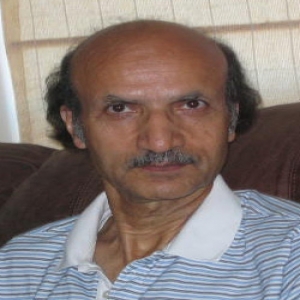Mystic Trends in Kashmiri Poetry
Kashmir, which is known as the 'paradise on earth', has been the abode of eminent scholars, savants, historians and poets, like Bilhan, Mamatachary, Anandavardhana, Gunaverman, Abhinavagupta, Jonaraja, Kalhana, etc. These luminaries had mastery over Sanskrit language. During the Muslim rule, Persian became the court language. Kashmiri scholars did not lag behind in acquiring mastery in this language also and produced scholars and poets like Gani Kashmiri, Munshi Bhawani Dass Kachroo, Hyder Malik Chadura, Narayan Kaul Ajiz, Muhammad Azam Didmari, etc. Besides them, there were saints and poets who preferred to use their own Kashmiri dilect for conveying their messages and thoughts. These included both men and women. Most prominent among them were Sheikh Noor-u-Din Noorani, Lal Ded, Rupa Bhawani, Habba Khatoon and Arinimaal.
Arnimal - A Leading Light
Born in the eighteenth century, nearly two hundred years after Habba Khatoon, Arnimal followed in the wake of the tradition of her predecessor and made the love lyrics adopted by Habba Khatoon more of a plaintive wail.
Abdul Ahad Azad - The Poet of Tomorrow
Azad is inherently possessed of uncommon consciousness of head and heart. He has never elected to go into the shell like other Kashmiri Romanticists. Instead, he has tried to analyse Man in every sense of the word, bereft of any curves or blind alleys.
Ksemendra - The Peoples Poet
Ksemendra did not err in his duty towards his brethren and though being a rebel did initiate a very healthy trend in the sanskrit literary tradition.
Chakbast
He started writing poetry from a very young age and generally his poetic compositions used to be very short, crisp and meaningful.
Shamas Faqir - Religious Mysticism
With the advent of Islam in India, Persian studies gained popularity among the literary sections of the society, that included the Hindus and the Muslims alike.
Saint-Poet Mirza Kak
After Lal Ded, Sahzanand and Roopa Bhawani, the Valley was again blessed with the birth of one more saint- poet Mirza Kak, who contined the Vakh parampara in Kashmir.Vakhs are the quintessence of spiritual and religious sayings and utterances of mystics and saints.
Avatar Bhatt
Avatar Bhatt (15th century) was a court-poet to King Zain-ul-Abidin and a noted scholar of Sanskrit and Persian. He is known for his work Banasur Katha (The Story of the Demon Banasur).
K L Chowdhury
A deeply sensitive poet with a great reverence for nature and the culture of his people, Kundan Lal Chowdhury has lived through and witnessed the rise of militancy, the exodus of Kashmiri Hindus from the valley, the destruction of the composite culture as well as the degradation of the environment.




